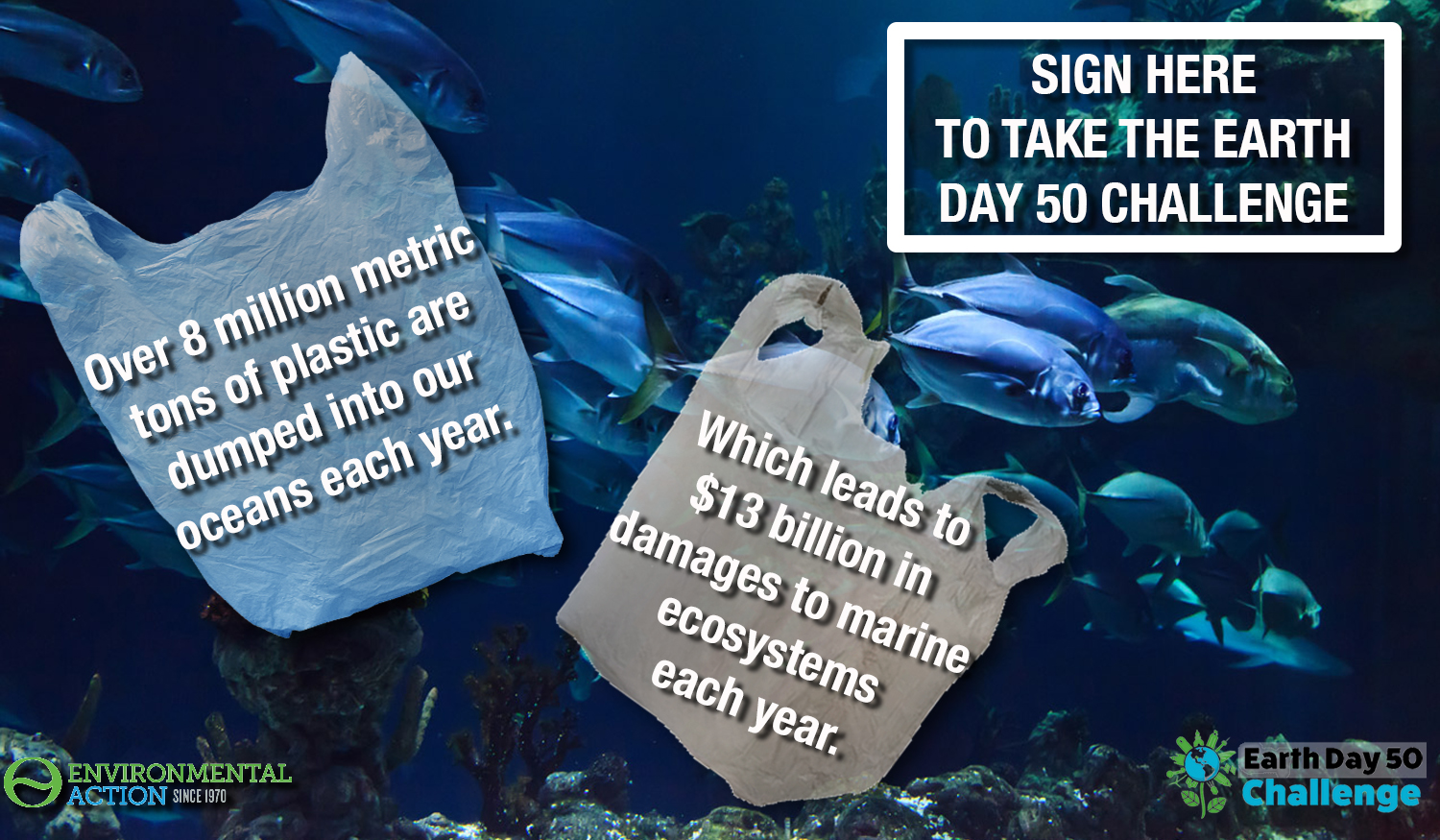|
Pollution from runoff, plastics, shipping and global warming is harming our oceans, as well as the creatures and people who depend on them. If we want the companies most responsible to clean up their act, we need them to make some big changes. Sign here to tell the biggest polluters to meet us at Earth Day Texas and sign a pledge to protect our oceans.
Friend,
The trouble for our oceans starts on land, where global demand for food has been increasing. That demand, especially for beef and other meat, generates huge amounts of waste and requires tons of freshwater. This drawing-down of fresh water supplies, at the same time we increase runoff of animal waste and chemicals, is polluting our oceans at an alarming rate.1
At the same time, more and more-intense farming is polluting our oceans, which are being used as a dumping ground for all kinds of trash. It’s estimated that over 8 million metric tons of plastic are dumped into our oceans each year, at a cost of about $13 billion in damages to marine ecosystems each year. By 2050, it is projected that ocean-borne plastic waste will exceed the tonnage of marine life itself.2 Even as we put too much junk IN our oceans, we’re taking too much OUT of them too: over-fishing critical species like the Antarctic Krill that are vital to whales and the health of the ecosystem.3
Many of the companies that cause this pollution, dumping and over-fishing are household names. Big companies like Nestle, Cargill, Whole Foods and more can take concrete steps to reduce pollution, keep plastic trash out of our oceans and invest in sustainable farming. But they won't, unless we ask them. That's why we've teamed up with partners at Earth Day Texas to demand the 50 biggest companies on earth meet us in Houston in three weeks and sign a pledge to save our oceans. Will you back us up by signing here?

Saving our oceans is about more than just recycling plastic and eating organic (though those are good things to do too). Our oceans are also vulnerable to climate change because they act as a tremendous carbon sink, absorbing about one-third of carbon dioxide emissions. And because global warming pollution is running rampant, it's actually changing the entire ocean's chemistry, making them increasingly acidic and killing off coral reefs and shellfish in the process.1
The good news is, just like we can make our cars, factories and electric grids more efficient, we can clean up the ships that carry a huge amount of cargo across our oceans each day.4 And by greening up big companies like Walmart's ocean-shipping fleets, we can make a huge dent in global warming emissions while protecting our oceans!
But we can't do it without your help. Later this month, I'm headed to Houston to meet with as many big companies as I can and ask them to sign our pledge to clean up our oceans, forests and climate. Will you help me get their attention by signing on to our Earth Day 50 challenge?
Thanks for taking action,
Sally and the clean oceans the team at Environmental Action
1 - Oceana, Our campaign to stop ocean pollution
2 - Anastasia Pantsios, 8 Million Metric Tons of Plastic Dumped Into World’s Oceans Each Year, Ecowatch, February 16, 2015
- Ocean Conservancy and McKinsey Center for Business and Environment, Stemming the Tide: Land-based strategies for a plastic - free ocean, September 2015
3 - Stuart Leavenworth, China fishing plan in Antarctica alarms scientists, McClatchy March 19, 2015
4 - Fred Pearce, How 16 ships create as much pollution as all the cars in the world, the Daily Mail, November 21, 2009
|
